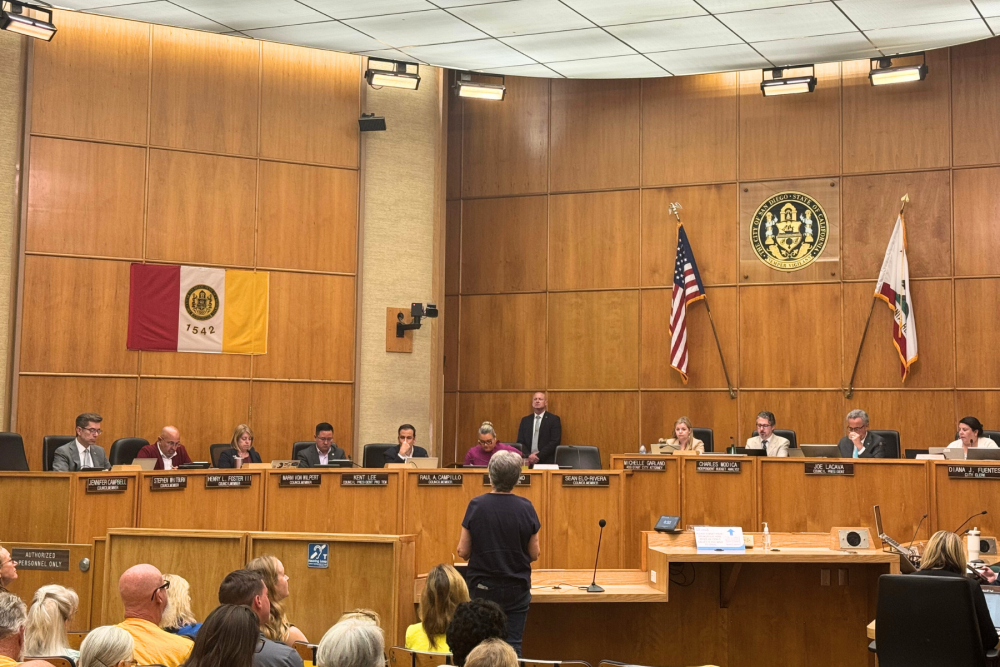City Council Adopts Reforms to Accessory Dwelling Unit Program

The San Diego City Council has approved a comprehensive package of 25 reforms to the City’s Accessory Dwelling Unit (ADU) and Junior Accessory Dwelling Unit (JADU) regulations.
The amendments include updates to implement state laws related to ADU homes, along with updates to the ADU Home Density Bonus Program that address infrastructure, fire safety, parking and other community needs.
The process was informed by extensive public and City Council input, with public hearings held by the Planning Commission on May 1 and the Land Use and Housing Committee on May 15.
“These reforms are the result of thoughtful input from community members and the City Council to evaluate the ADU program and make meaningful changes,” said City Planning Director Heidi Vonblum. “Our goal is to ensure public safety and allow for development at scale with the surrounding neighborhood while continuing to create affordable homes for San Diegans of all incomes, particularly in the City’s high-resource areas.”
ADUs are additional homes built alongside a primary residence and can play a key role in addressing San Diego’s critical housing shortage by producing homes for people of all incomes. JADUs are smaller homes — no more than 500 square feet — created within existing homes in single-family zones.
Highlights of regulatory amendments related to state-required ADU and JADU homes include:
Fire safety setbacks: Requires a minimum of four-foot side and rear setbacks for ADU homes in High or Very High Fire Hazard Severity Zones to create defensible space. It also allows the Fire Code Official to require a greater setback to ensure compliance with the California Fire Code.
Units Allowed on Single-Dwelling Lots: Clarifies that one JADU, one converted ADU and one detached ADU are allowed on lots with an existing or proposed single-family home.
ADU Home Separate Sale or Conveyance: Implements Assembly Bill 1033, allowing for the subdivision of ADU homes into condominium units that can be sold separately from the primary residence.
Highlights of the regulatory amendments to the ADU Home Density Bonus Program include:
Applicability: Prohibits the ADU Home Density Bonus Program in the City’s lowest density zones including RS-1-1, RS-1-2, RS-1-3, RS-1-4, RS-1-8, RS-1-9, RS 1-10 and RS-1-11 zones, except in highest- and high-resource areas outside of open spaces and parks, and identifies a maximum total unit count based on the size of the lot.
Fire Safety and Evacuation Routes: Projects located on lots within High or Very High Fire Hazard Severity Zones must be on an improved public street that has at least two evacuation routes.
Parking: Requires one off-street parking space for each affordable ADU and bonus ADU developed outside of the Transit Priority Area.
Community Enhancement Fee: Requires applicants to pay a fee for bonus and affordable ADUs under 750 square feet. The funds will support neighborhood infrastructure such as active transportation, fire facilities, libraries and park and recreation improvements in communities of concern.
Sustainable Development Area Clarification: Clarifies that walking distance to a major transit stop must include a sidewalk to be considered a pedestrian path of travel.
The adopted amendments will take effect 30 days after final passage for areas outside of the Coastal Zone. Implementation within the Coastal Zone is subject to certification by the California Coastal Commission, which is expected in 2026.
Full details of the adopted reforms will be available on the City’s Land Development Code webpage within the next week.
